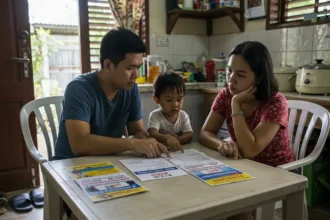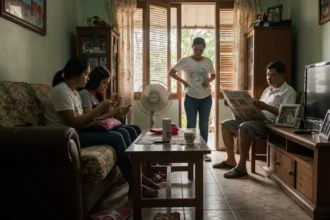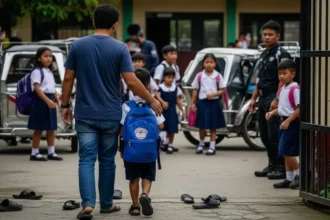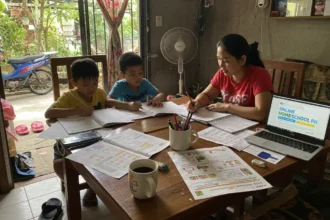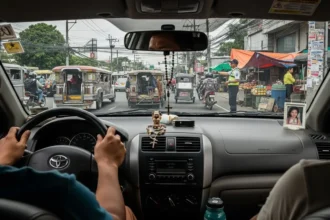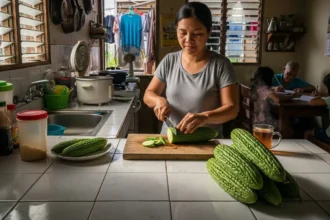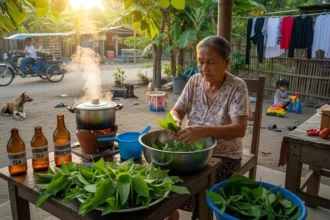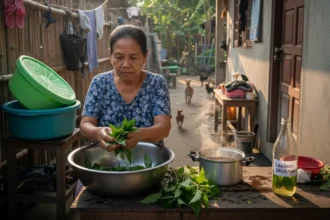It’s 5:00 a.m. in a small barangay. A mother rushes to prepare rice and eggs while her youngest tugs at her skirt asking for help with a school project. She checks her phone for e-load customers while mentally calculating how much is left for the week’s groceries. By the time she leaves for work, she’s already exhausted – but her day is just beginning.
This is the quiet reality of many single parents in the Philippines. Some were left behind by partners, others separated by choice, and many became solo parents because of migration or even death. Behind every “strong parent” compliment lies an untold mix of pressure, guilt, and resilience.
💔 The Struggles of Being a Single Parent in the Philippines
Emotional & Cultural Burden
In the Philippines, family is everything – and the picture-perfect setup is still imagined as nanay, tatay, at mga anak. When one parent is missing, society rarely stays quiet. Single parents often endure silent judgment from relatives, neighbors, or even church communities. Casual comments like “Sayang, hiwalay sila” or “Kawawa naman ang bata, walang tatay/nanay” may seem harmless to outsiders, but they leave scars for those already carrying the heavy responsibility of raising children alone.
There is also the pressure to make up for what’s missing. Many solo parents push themselves to be both disciplinarian and nurturer, provider and comforter. They don’t just play two roles – they play all of them, often without rest. The exhaustion goes beyond the body; it weighs on the heart and mind, too. Yet despite the struggle, many feel they can never show weakness, because the children are watching.
Financial Survival
Money becomes a daily battle. With only one income, every peso has to cover tuition, rent, utilities, and food. For many, payday is not a moment of relief but simply the start of another round of sacrifices and budgeting.
Think of a call center mom working graveyard shifts, sleeping barely four hours a day before cooking breakfast and checking her kids’ homework. Or a tricycle-driving dad braving the midday heat to make enough for rent and meals. Or the OFW mother sacrificing her presence in her children’s lives to earn abroad. Different faces, but the same question haunts them all: “Sapat ba ito hanggang susunod na sweldo?”
The pressure is not just about the basics. School projects, class trips, birthday celebrations, and unexpected medical expenses often feel like mountains to climb when only one pair of hands is carrying the load.
The Silent Toll on Children
Children of solo parents often grow up faster than their peers. They learn to cook rice, stretch an allowance, or take care of younger siblings much earlier than expected. These responsibilities build resilience and independence, but they also carry a hidden cost.
Some quietly yearn for the absent parent – a father missing from recognition day, a mother not present during a school play. Others struggle with feelings of envy or confusion, wondering why their family doesn’t look like everyone else’s. In many cases, kids even become protectors of their parent, hiding their own sadness or worries so as not to add to the burden.
The strength they gain is undeniable, but so is the loneliness. Behind every mature smile is a child who, more than anything, just wants presence – not gadgets, not money, but the comfort of knowing both parents are there.
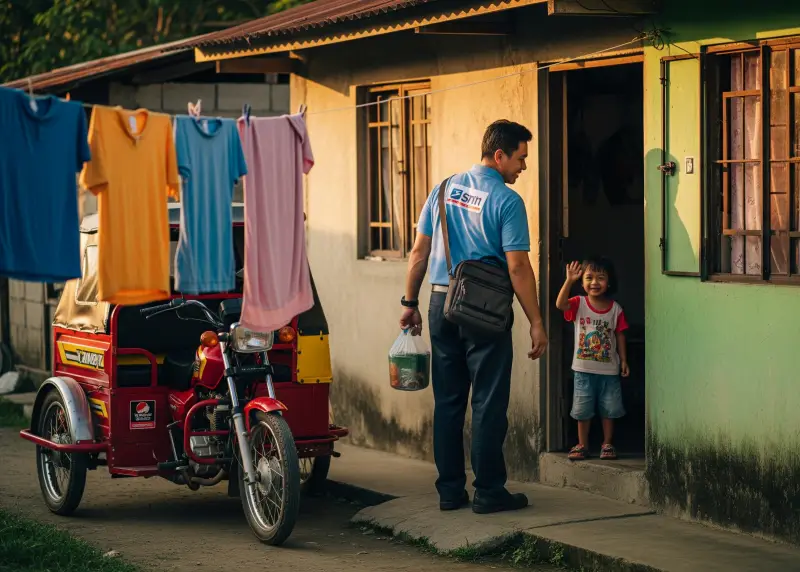
🙌 Coping and Resilience: How Pinoys Adapt
Community & Bayanihan Spirit
In the Philippines, survival is rarely a solo act. For single parents, the extended family and neighborhood become lifelines. A lola who patiently waits outside the school gate to pick up her apo, a tito who slips a few pesos into a child’s hand for tricycle fare, or kapitbahay who casually offers “kuha ka ng ulam, sobra kami dito” – these small gestures carry the weight of a lifeboat in rough seas.
This bayanihan spirit is not just cultural decoration; it is the net that catches single parents when they stumble. Without it, many would have to shoulder impossible loads alone. And while it doesn’t erase the struggle, it reminds them they are not truly alone in the fight.
Faith as Fuel
Ask a single parent what keeps them going, and many will answer simply: dasal. In moments when bills pile up and exhaustion threatens to take over, faith becomes both shield and compass. Some find strength during Simbang Gabi, whispering silent prayers for guidance in between hymns. Others gather courage in nightly orasyon, asking for patience to raise children in love despite the odds.
Faith doesn’t magically pay tuition or erase loneliness, but it sustains the spirit. It gives single parents the belief that even if today is hard, tomorrow might hold a blessing waiting to be discovered.
Finding Joy in the Small Wins
Amid the sacrifices, single parents learn to magnify even the smallest victories. A child bringing home a “Perfect Attendance” certificate becomes a reminder that their efforts are worth it. A simple Sunday lunch of adobo and rice, eaten together at a cramped dining table, can feel richer than any feast.
Every milestone – first honor in class, a smile from a teenager, laughter shared during a family TV night – becomes proof that love is bigger than absence. These little triumphs are not just achievements of the child, but quiet medals for the parent, affirming that despite the loneliness, judgment, and fatigue, they are raising resilient and loving Filipinos.
⚖️ Legal Rights and Government Support
When the RA 8972 or Solo Parents’ Welfare Act was signed into law, it was hailed as a victory for millions of Filipinos raising children on their own. On paper, it promised support that could ease both financial and emotional burdens. In reality, however, many single parents don’t even know these rights exist – or find it difficult to claim them.
What the Law Provides
- PhilHealth coverage and medical assistance – Solo parents and their dependents can qualify for PhilHealth benefits and additional support in health centers. For many, this means one less worry when the child gets sick.
- Flexible work schedule and parental leave – Certain companies are required to adjust schedules or grant additional leave days so single parents can attend school programs, doctor’s appointments, or simply rest. Sadly, enforcement still depends on the company’s policies and awareness.
- Educational benefits – Some LGUs and DSWD programs provide scholarships or school supply assistance to children of solo parents, though the application process can be tedious.
- Discounts on services – In select provinces and cities, local ordinances extend small but meaningful perks, like discounts on tuition, groceries, or utilities.
The Struggle Beyond the Law
Yet, talk to any single parent and they’ll tell you: accessing these benefits feels like another job in itself. Multiple IDs, endless photocopies, trips to the barangay hall, and long hours in government offices test their patience. Some give up halfway, too exhausted to pursue benefits that should have been automatic.
Many also feel the gap between policy and practice. While the law exists, not every HR officer is aware of its provisions, and not every LGU has the budget to fully implement them. As one single mother put it: “Ang hirap naman, parang kailangan pa naming ipaglalaban ang karapatan na dapat automatic na binibigay.”
Why Awareness Matters
For single parents, knowing their rights is just as important as fighting for them. Community groups and online forums have become crucial spaces where they share advice on paperwork hacks, supportive LGUs, or companies that actually honor flexible schedules. Slowly, the collective voice of single parents is pushing for better implementation – a reminder that laws are only as strong as the people who claim them.
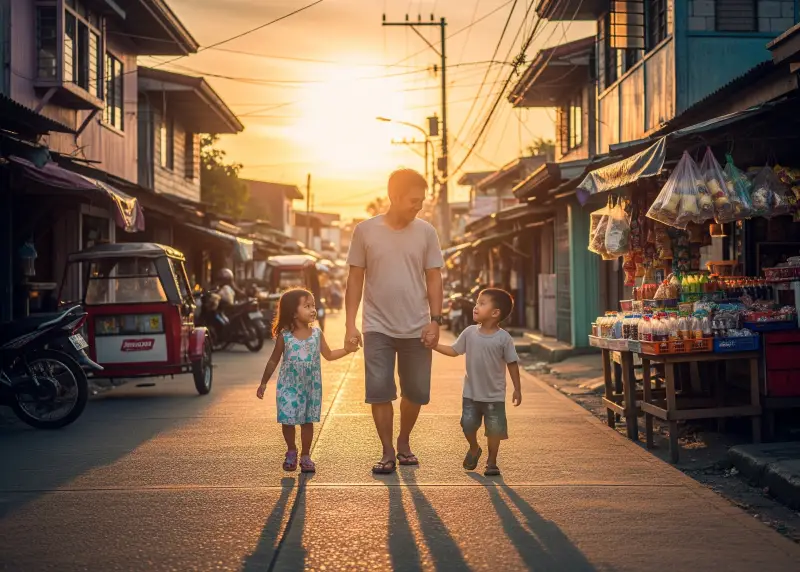
🛠 Practical Survival Tips for Single Parents
Life as a single parent in the Philippines is a constant balancing act, but small, consistent strategies can make the load lighter. These aren’t grand solutions, but they’re the little things that can mean survival – and sometimes even peace of mind.
Budget Smart
One of the biggest struggles is stretching a single income. The 50-30-20 rule can help as a guide: 50% of income goes to needs (rent, tuition, groceries), 30% to wants (family outings, a little treat at Jollibee), and 20% to savings if possible. Of course, not every month allows perfect balance – sometimes 100% goes to bills – but having a framework helps avoid total financial chaos.
Meal Prep the Pinoy Way
Cooking in bulk saves time, money, and energy. Classic Pinoy dishes like adobo, tinola, or giniling keep well for days, making them perfect for baon. A weekend batch cooking session can mean fewer daily stresses and more time spent with kids instead of hovering over the stove every night.
Build a Childcare Network
Raising kids alone doesn’t mean raising them without help. Many barangays have informal support systems where parents take turns watching over each other’s children. Even a friendly kapitbahay who keeps an eye on kids playing outside is a big help. For solo parents, trustworthy allies in childcare are worth their weight in gold.
Limit Debts Before They Limit You
Loans like 5-6 lending and unchecked credit card bills are tempting short-term fixes, but they can trap single parents in long-term debt. Focusing on essentials first – food, housing, education – is crucial. Learning to say “no” to unnecessary gastos is not just discipline, it’s survival.
Don’t Forget Self-Care
Single parents are often told to “sacrifice everything,” but burnout benefits no one. Even a 10-minute quiet coffee at dawn, a quick walk, or a chat with a friend can recharge the spirit. These tiny breaks remind parents they’re still human beings with needs, not just tireless providers.
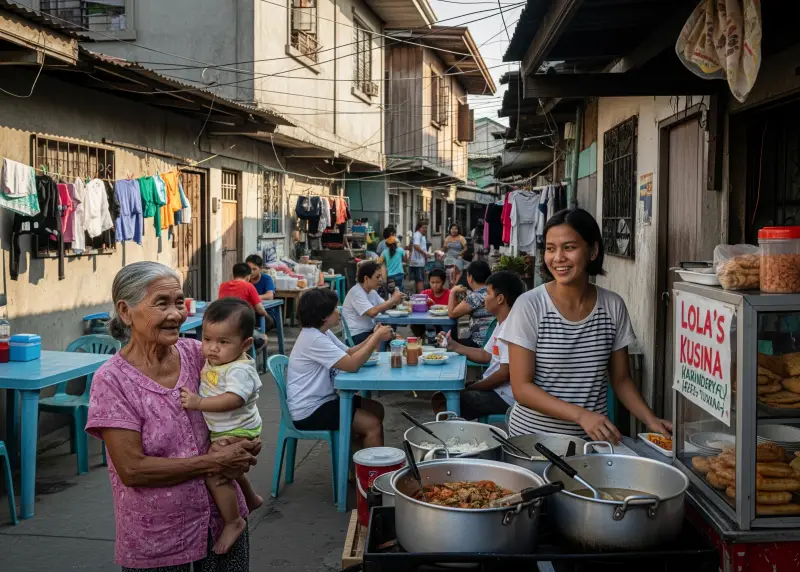
📚 Real Stories That Inspire
Behind every statistic on single parenting are stories of grit, sacrifice, and love that refuses to quit. These everyday heroes don’t always make the news, but their lives show what true strength looks like.
The Call Center Mom
By night, she handled irate customers across the world; by day, she was a mother racing to pick up her child from school. With only four hours of sleep, she powered through endless shifts. “Kapag nakikita ko ‘yung anak ko na may baon at naka-uniform, kahit pagod ako, sulit lahat,” she said. In the end, her sacrifice paid for her child’s tuition – a victory written in both bills and bedtime hugs.
The Tricycle Driver Dad
His mornings started before sunrise, his shirt damp with sweat before noon. Rain or shine, he ferried passengers around town while raising two young children after losing his wife. For him, every boundary pushed by his tricycle was also a boundary pushed for his family. One of his kids once said: “Si Papa ang superhero namin.” For him, that was enough fuel to keep pedaling through hardship.
The OFW Mom
She left the Philippines with a heavy heart, promising her kids she’d be back soon. Years passed, and her house was built – walls painted, a roof secured, appliances bought. Yet she admitted the hardest part wasn’t the distance, but the silence between video calls. “Masakit na wala ako sa graduation, birthdays, o kapag may sakit sila,” she confessed. The house stood tall, but her real dream remained her children’s embrace.
These stories remind us that single parenting isn’t just about survival – it’s about resilience, creativity, and an unshakable kind of love. Every long shift, every peso saved, every lonely night abroad becomes part of a bigger narrative: that love, when tested, doesn’t shrink – it multiplies.
🌅 Looking Ahead
The reality of single parenting in the Philippines is not just about hardship – it’s about redefining family in the modern Pinoy context. Families today may no longer fit the “perfect” mold, but love, discipline, and resilience remain intact.
As I reflect on the journey of raising a child myself, I’ve come to understand that parenting – single or not – is never about perfection. It’s about showing up, every single day, despite exhaustion, doubts, or fears.
Perhaps that’s the quiet superpower of Filipino single parents: the ability to turn everyday survival into everyday triumph.




